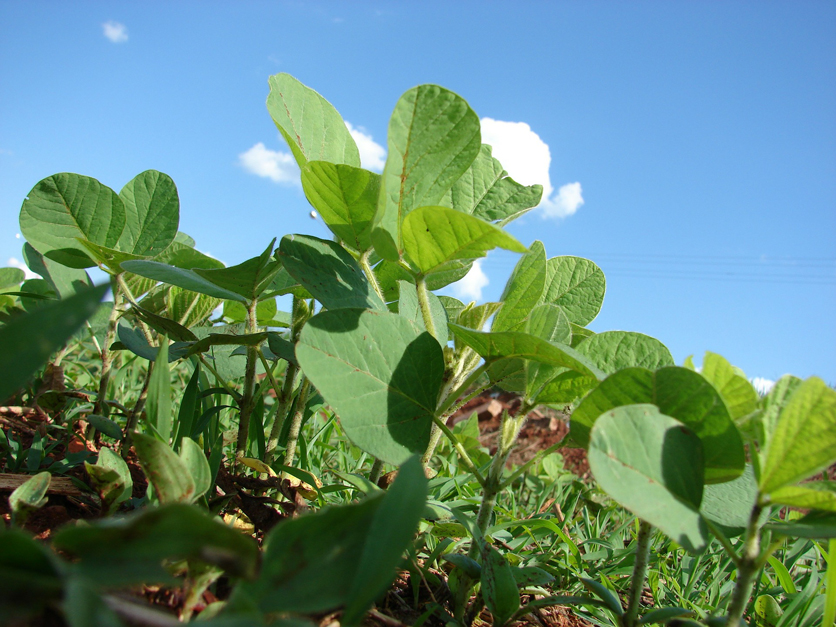The federal “BioPreferred” initiative to boost farm income, economic development and job growth is paying off in a big way.
One measure of success is that out of $450 billion in federal government purchases last year on goods and services, about $450 million went into buying biobased products such as non-toxic, high-performance, cost-competitive pallets, paints, carpets, floor tiles, lubricants, and janitorial supplies.
USDA’s 142-page 2016 Economic Impact Analysis of the U.S. Biobased Products Industry concluded that these market-developing federal purchases have helped create a bioproducts industry that generated $393 billion in value added and supported 4.2 million jobs in 2014.
It’s all happening because the 2002 farm bill launched USDA’s BioPreferred Program to require federal agencies to give purchasing preference to biobased products. The 2014 farm bill expanded the original mandate to include forestry products. The innovative program defines biobased products as those derived from plants and other renewable agricultural, marine and forestry materials, excluding food, feed, biofuels, livestock, and pharmaceuticals.
Kate Lewis, an analyst with the BioPreferred program, tells Agri-Pulse that with $2.7 million in annual federal funding, the program is sharply focused on its mission “to incentivize the increased development, purchase and use of biobased products.”
Lewis says that after starting with just six product categories in 2005, the BioPreferred program now includes 97 federal purchasing categories, from adhesive removers to wood and concrete stains, and lists some 15,000 tested bioproducts. Additionally, USDA offers a voluntary certification program that has enabled private industry to display the “USDA Certified Biobased” label on over 3,000 bioproducts.

Kate Lewis
One sign of the program's progress came in February 2016 when then-Agriculture Secretary Tom Vilsack congratulated Procter & Gamble for “integrating renewable materials into Tide detergent, a classic, everyday American product that now carries the ‘USDA Certified Biobased’ label” on its Tide purclean laundry detergent.
Will Shearouse, R&D senior scientist with P&G Global Fabric Care, said the USDA BioPreferred program "is an objective, quantitative, eco-credentialing program that allows consumers to know if the products they are buying contain renewable materials.
"Continually increasing the amount of renewable materials in our products like Tide and Gain is one of P&G’s sustainability goals," he said. "As such, having trusted programs like the USDA BioPreferred program that communicate this to consumers is important."
Another milestone came last November when about 430 companies making USDA-vetted wooden pallets began using the certified label. National Wooden Pallet & Container Association (NWPCA) President Brent McClendon says the USDA label “confirms the strong environmental attributes of wood pallets and presents tremendous opportunities for our members.” This was the first case of USDA providing group certification, covering every NWPCA member company using its unique Pallet Design System for reducing waste and improving performance.
NWPCA Vice President of Communications Annette Ferri says the BioPreferred program has already become “a great tool for our companies.” She noted that USDA’s Kate Lewis herself attended a NWPCA conference and “did presentations for our association” to explain the benefits of USDA certification.
Bert Herring, president of BioFiber Solutions International (BFSI), says his paper products company would not exist today without the BioPreferred program. He says he launched the business in 2012 “because we saw an opportunity to manufacture office products that we thought could be certified as USDA BioPreferred for purchase in the federal procurement program.”
Based on his success in creating new biobased office products, Herring calls on other companies to pursue the opportunities created by the BioPreferred program. “Any product made from paper or plastic is a potential opportunity for companies to invent and re-engineer more biobased products that use agricultural materials,” he says. He also sees an opportunity for some companies to process U.S. ag wastes for use in paper making, to eliminate his current need for imports.

Ford Motor Company uses soybean-based foam cushions in car seats installed in more than 3 million vehicles.
Speaking for Cotton Inc., the cotton industry’s non-profit research and marketing association, Jan O’Regan, marketing director at Nonwovens, says that after working with USDA’s BioPreferred effort since it launched, “I like the fact that it spans the entire supply chain from raw materials through finished products. I like this platform for building demand for farm commodities.”
“The U.S. agricultural industry is a really important constituency for us,” O’Regan says, “so we’re very happy about the fact that this program promotes biobased materials that are produced and grown in the U.S.” She explains the result is new demand, jobs and profitability “for all the participants in the cotton supply chain.”
O’Regan says increased funding for the program would do even more for biobased products. The program “is not only stimulating innovation but stimulating business” by mandating federal bioproduct purchases, she says, urging companies to get their products added to USDA’s BioPreferred catalog, as Cotton Inc. did years ago, with positive results ever since.

Jan O'Regan
Cortec Product Development Manager Ming Shen says that with 34 of its lubricant and corrosion protection products listed in the BioPreferred catalog, “It shows our commitment to a sustainable environment.” She also calls for greater awareness of and funding for the BioPreferred program.
A food packaging industry executive not authorized to mention his name or company tells us that after having several products listed in the BioPreferred catalog, he’s applying for additional listings. The aim, he says, is to create “market buzz and more credibility by having USDA certification.”
“We’re putting money, time and effort into this,” he says, “because we feel certification can raise awareness for our packages versus packages made from petroleum products.”
To search for biobased products by product, category or company name, access USDA’s online BioPreferred Catalog. The listings provide product descriptions and website links. To register your company, add a product or apply for certification, go to Company Tools. If your product category isn’t listed, you can suggest a new category. USDA’s BioPreferred program doesn’t provide financial support itself but you can apply for a USDA Rural Development loan or grant.
For more news go to: www.Agri-Pulse.com


